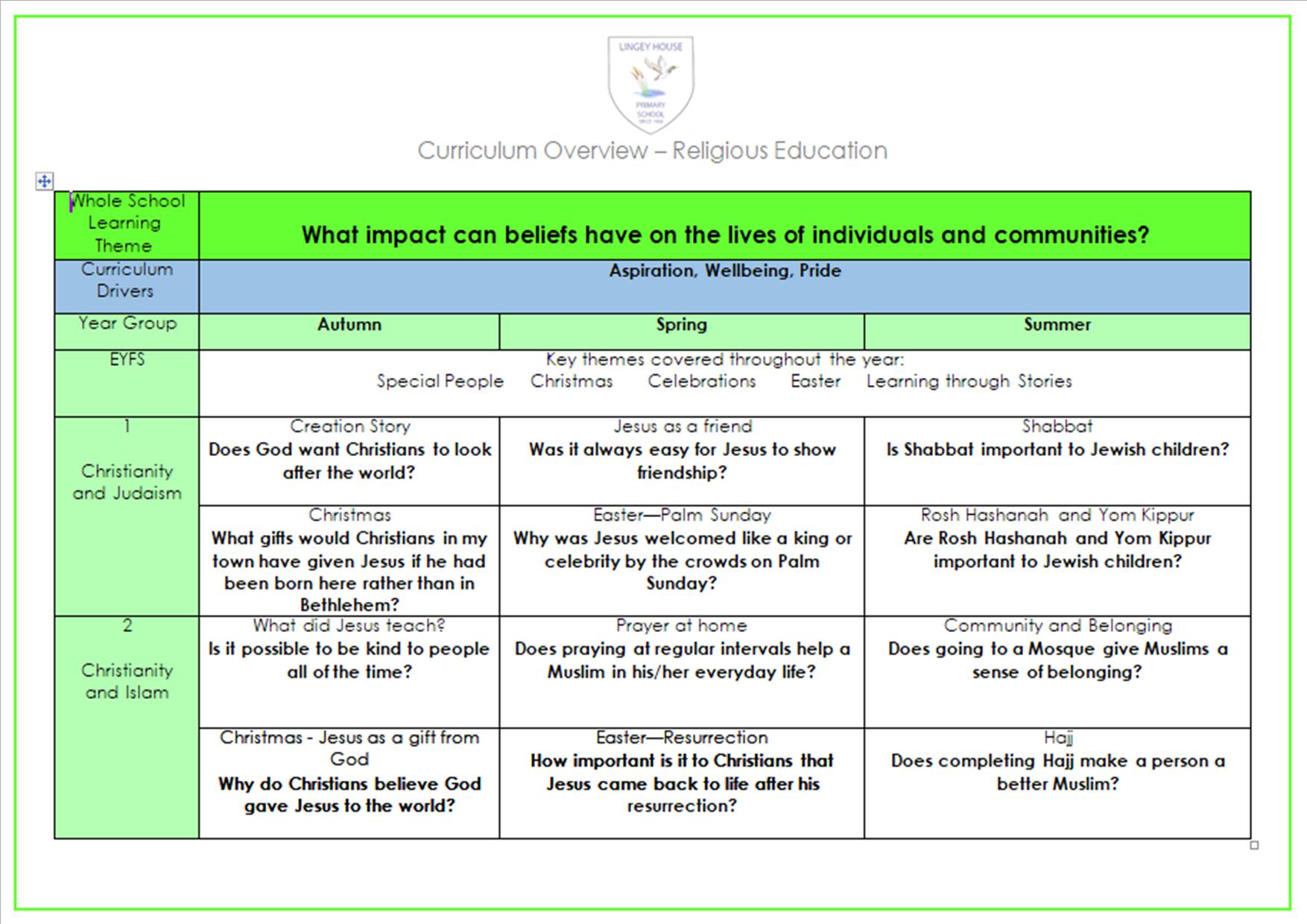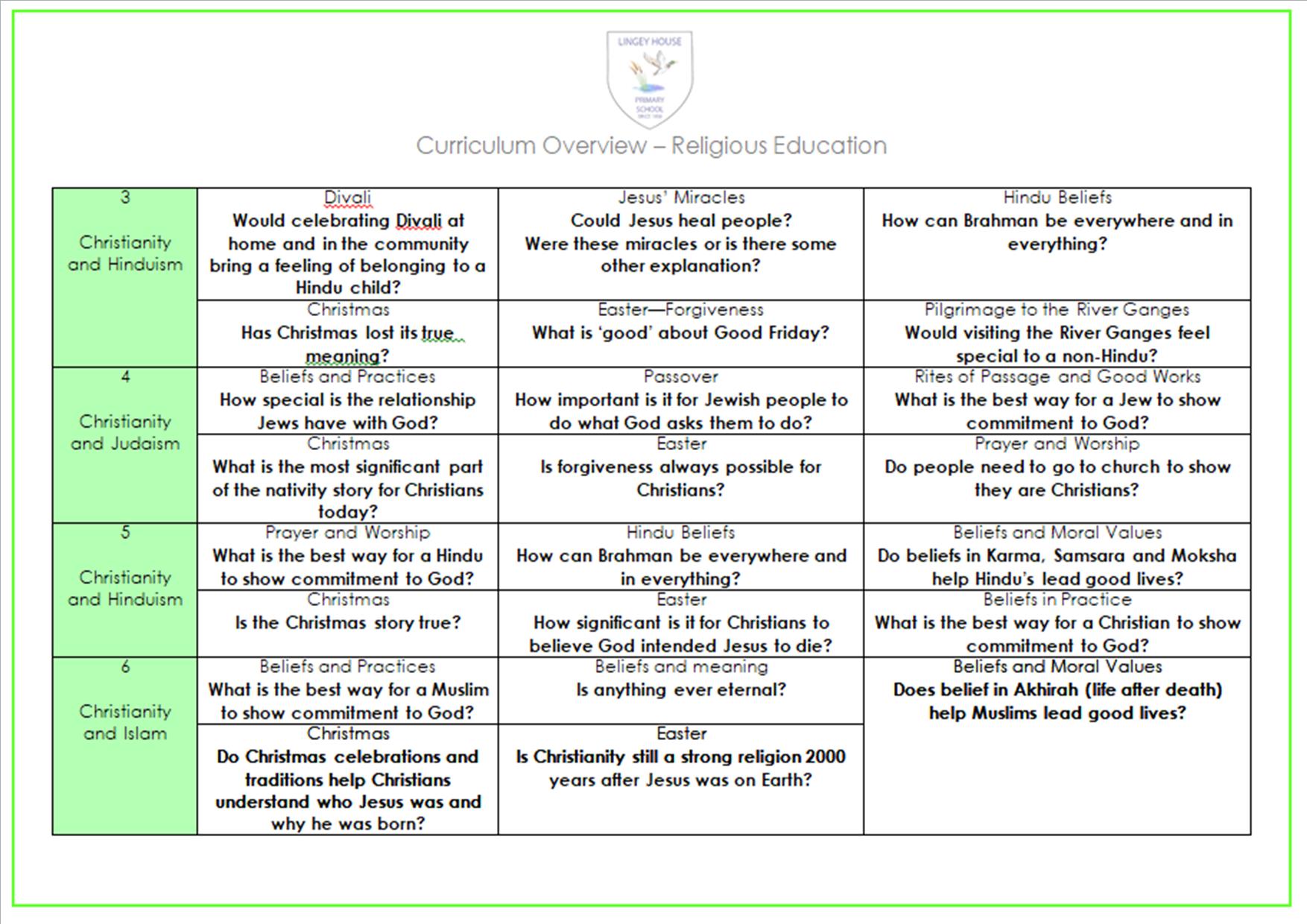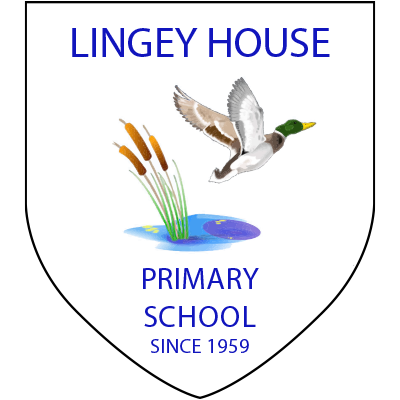RE
RE
Subject Lead: Mrs H Goulty-Brown

Curriculum Rationale - RE
Intent
At Lingey House, the role of Religious Education (RE) is to help prepare and equip all pupils for life in contemporary Britain by enabling them to acquire a good level of religious literacy. This means to gain an understanding of the diverse beliefs and religious practices of our faith communities, to understand the non-religious view held by a number of people in our society, and to respect the right of all people to make these very personal choices. Through an enquiry-based approach, children will become critical thinkers and able to identify, investigate and respond to a variety of issues and religious questions.
Parents have the right to withdraw children from religious lessons and collective worship; however, it must be taken into account that these activities make a contribution to cross-curricular National Curriculum objectives and help shape them into accepting, educated individual’s in a varied community.
Implementation
We follow the Gateshead Agreed RE Syllabus (2018) and use the Discovery RE planning guidance as recommended by the local authority which allows our children to explore, engage and reflect on principal religions and their practices. Lessons take an enquiry-based approach to teaching and learning through key questions. Each key question for enquiry is such that it requires an answer that weighs up ‘evidence’ and reaches a conclusion based on this. This necessitates children using their subject knowledge and applying it to the enquiry question, rather than this knowledge being an end in itself. Discovery RE focuses on critical thinking skills, on personal reflection into the child’s own thoughts and feelings, on growing subject knowledge and nurturing spiritual development. In addition to curriculum time, we have external visits to various places of worship and visits in school from different faith leaders which provide the children with valuable experiences. We have the philosophy that children are free to make their own choices and decisions concerning religion and belief. It is our aim to ensure we inform and develop the skills with which evaluation can take place.
EYFS
In the Early years, Religious Education is a key aspect in developing our children’s personal, social and emotional development and understanding of the world. During the Early Years, children begin to explore the world of religion in terms of special people, stories, celebrations, events, places and objects. They begin to ask questions and reflect on their own feelings and experiences. Through exploring, observing and finding out about different religions and practices, they use their imagination and curiosity to develop a wonder of the world in which they live.
Key Stage 1
During Key Stage 1, our children are introduced to some of the beliefs and features of Christianity, Judaism and Islam and they begin to use subject specific vocabulary. Children are given the opportunity to raise questions and express their views simply. By encountering a variety of sources, children develop their enquiry skills to find out about religious and non-religious beliefs, practices and their impact on individuals and communities. Lessons take an enquiry approach with key questions being the driver to explore the overall unit question. Children are regularly given opportunities to consider what they can learn from the religious and non-religious worldviews and practices for their own lives.
Key Stage 2
During Key Stage 2, our children are encouraged to be curious and ask increasingly challenging questions about religion, belief, values and human life. Building on their learning from Key Stage 1, our children extend and deepen their factual knowledge of religious beliefs and practices and begin to recognise local, national and global contexts. They extend their subject specific vocabulary, form their own reasoned opinions, identifying relevant information and using examples to back up their ideas. Children continue to be given opportunities to reflect on their own feelings, experiences, ideas, beliefs and values in relation to the religious material studied. During their time in Key Stage 2, children are taught about Christianity, Judaism, Islam, Hinduism and religious diversity. As such, by the time children leave our school in Year 6, they have encountered four of the world’s six principal religions (Sikhism and Buddhism are taught at Key Stage 3).
Impact
As a result of strong teaching and learning in Religious Education, our children will have a sound knowledge and understanding of the principal religions they have studied, how many of the beliefs and values are interconnected, the impact that religion has on the lives of individuals and communities and the key religions present in their local community. Through this knowledge and understanding, children will celebrate difference and diversity, show respect for others with different beliefs to their own and have the self-confidence to debate their own opinions when discussing religion with others. We also want children to question the impact of their learning and have posed the question, ‘What impact can beliefs have on the lives of individuals and communities?’
Overview:


